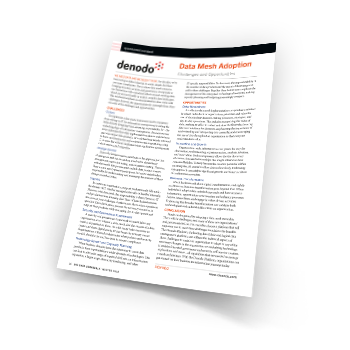Right now, nearly two-thirds of DBTA subscribers have budgeted for initiatives related to modernizing their data platforms and data mesh is at the forefront of many data architecture discussions. Given the ongoing challenges data teams have faced in democratizing data at scale, this is not surprising. More and more enterprises are adopting a “data-as-a-product” mindset, and this means getting data out of silos and into the hands of data consumers through greater self-service capabilities. The decentralized approach of data mesh has emerged as a popular choice for organizations hungry to maximize the value of their data with improved ownership and sharing amongst business groups.
At the same time, there is no one-size-fits-all solution and data mesh is not a one-and-done affair. From choosing the right platform and tools to managing data security and governance, there are a variety of issues that need to be addressed to build a solid foundation. This includes organizational and process changes in both IT and business departments to ensure that data consumers and producers are aligned. Fortunately, data mesh does not need to be accomplished in one fell swoop, and companies can start small and build from early wins.
To help IT leaders and data management professionals navigate the key success factors for data mesh adoption, DBTA is publishing a special best practices report in November 2023 that will be marketed to more than 100,000 qualified subscribers at organizations across North America.

